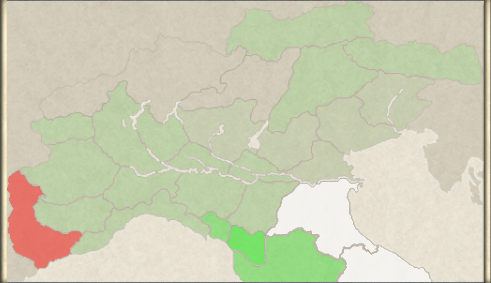

A n d t h i r d, L a t i n served as the language of worship, learning, and diplomacy in these kingdoms. The common faith hnked rulers w i t h their subjects. Second, Christianity became the dominant religion i n the kingdoms. Kinship obligations to a particular clan of blood relatives rather than citizenship, as in the Roman Empire, defined a person’s place in society and his or her relation- ship to rulers.

First, i n the Germanic kingdoms personal loyalty rather than
:max_bytes(150000):strip_icc()/medieval-II-total-war-56aba1a15f9b58b7d009cde9.jpg)
Three ele- ments helped unify these kingdoms. They bor- rowed f r o m Roman law while establishing government institutions, but they also relied on their o w n traditional methods of rule. Germanic Kingdoms on Roman Foundations The new Germanic kingdoms of L a t i n Christen- dom created a new kind of society. These tribes became the nucleus for the new Latin Christian kingdoms that emerged by 750 (see M a p 9.1). K i n g d o m s of western E u r o p e b u i l d o n Rome’s legal and governmental legacies and h o w d i d C h r i s t i a n i t y spread i n these new kingdoms ?īy the time the Roman Empire collapsed in the West during the f i f t h century, numerous Germanic tribes had settled in the lands of the former empire. THE BIRTH OF LATIN CHRISTENDOM H o w d i d L a t i n C h r i s t e n d o m t h e new


 0 kommentar(er)
0 kommentar(er)
